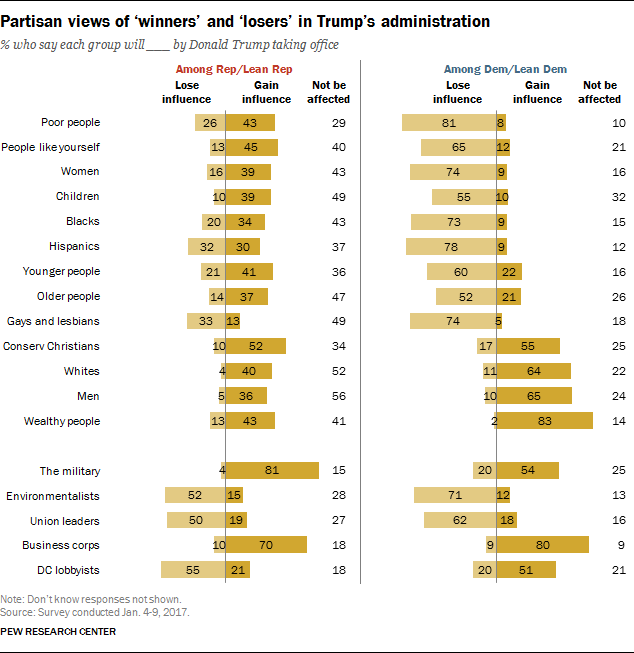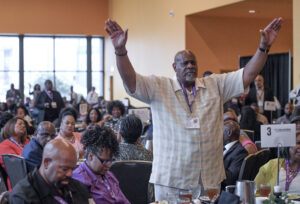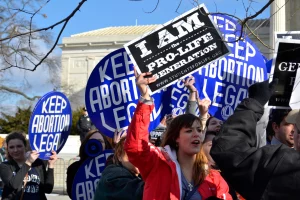
NASHVILLE (BP) — Conservative Christians will gain influence under President-elect Donald Trump’s term, more than half of respondents polled in a Pew Research study believe.
Conversely, Hispanics, the poor, and gays and lesbians will lose influence under Trump, a majority of those polled told Pew. Nearly half of respondents said African Americans and women are poised to lose.
 “The public’s assessments of the groups that will gain and lose influence in Trump’s presidency are sharply different than before Barack Obama took office eight years ago,” Pew said in its findings released Jan. 18. “In many cases, they mirror views of expected ‘winners’ and ‘losers’ under George W. Bush before he took office in January 2001.”
“The public’s assessments of the groups that will gain and lose influence in Trump’s presidency are sharply different than before Barack Obama took office eight years ago,” Pew said in its findings released Jan. 18. “In many cases, they mirror views of expected ‘winners’ and ‘losers’ under George W. Bush before he took office in January 2001.”
In the survey conducted Jan. 4-9 among 1,502 adults, both Democrats and Republicans viewed Trump’s presidency as a win for conservative Christians, with 55 percent of Democrats and 52 percent of Republicans agreeing on the point. Among Republicans and Republican-leaning adults polled, only 10 percent predicted conservative Christians will lose influence, while 34 percent said they expect things to remain the same for the demographic group. Similarly among Democrats and Democrat-leaning adults polled, 17 percent said conservative Christians will lose influence; 25 percent said the demographic’s circumstances won’t change.
A majority of respondents, 56 percent, said Hispanics will lose under Trump; 55 percent said Trump is a loss for the poor, and 54 percent reached the same conclusion for gays and lesbians. Nearly half of respondents, 48 percent, said African Americans would lose ground under Trump, Pew said, while 19 percent said the racial group would gain influence, and 27 percent said the group would not be affected. Regarding women, 46 percent of respondents said the gender will lose influence, 23 percent said the group will gain influence, and 29 percent said women won’t be affected.
Comparatively, 51 percent of respondents said whites will fare better under Trump, while 35 percent said whites won’t be affected. Fifty-one percent said men will prosper under Trump, compared to 39 percent who believe circumstances won’t change for the gender. Trump’s term will prosper the wealthy, 65 percent of respondents said, while 27 percent said the wealthy won’t be affected. Only 8 percent of respondents said Trump is bad news for whites, men and the wealthy, with remaining respondents saying they don’t know how a Trump presidency will affect the demographic groups.
Partisan differences also emerged when respondents were questioned about Hispanics, the poor, and gays and lesbians, Pew said.
When considering the plight of Hispanics, 78 percent of Democrats said Hispanics will lose influence under Trump, while only 32 percent of Republicans said the same, according to Pew. Many Republicans considered Trump a win for the poor, with 43 percent saying the poor will fare better under the president-elect, 29 percent saying the demographic will not be affected either way, and 26 percent saying the group will lose ground. A preponderance of Democrats, 81 percent, said the poor will lose influence under Trump; only 8 percent of Democrats perceived Trump a win for the poor.
Regarding gays and lesbians, 74 percent of Democrats deemed Trump a loss for homosexuals, with only 33 percent of Republicans thinking the same.
Republicans and Democrats both viewed the prospects favorably under Trump for men, whites and the wealthy. Among Republicans, 92 percent said whites would either gain influence or not be affected, 92 percent said the same for men, and 84 percent reached that conclusion regarding the wealthy. Among Democrats, 86 percent said whites will gain ground or not be affected, 89 percent said the same for men, and 97 percent said the same for the wealthy.
In Pew research conducted before President Obama’s first term in office, 21 percent of respondents thought conservative Christians would gain ground under Obama, Pew said, compared to 51 percent who had a similar perception when Bush took office in 2001.
Of the 1,502 adults interviewed for the latest study, 376 were interviewed on landline telephones; 1,126 were interviewed on cell phones, including 674 who had no landline telephone, Pew said. The study is available at pewresearch.org.














